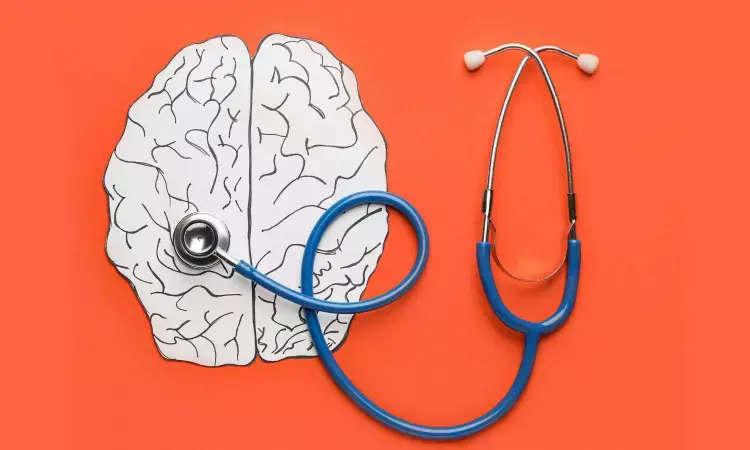- Home
- Medical news & Guidelines
- Anesthesiology
- Cardiology and CTVS
- Critical Care
- Dentistry
- Dermatology
- Diabetes and Endocrinology
- ENT
- Gastroenterology
- Medicine
- Nephrology
- Neurology
- Obstretics-Gynaecology
- Oncology
- Ophthalmology
- Orthopaedics
- Pediatrics-Neonatology
- Psychiatry
- Pulmonology
- Radiology
- Surgery
- Urology
- Laboratory Medicine
- Diet
- Nursing
- Paramedical
- Physiotherapy
- Health news
- Fact Check
- Bone Health Fact Check
- Brain Health Fact Check
- Cancer Related Fact Check
- Child Care Fact Check
- Dental and oral health fact check
- Diabetes and metabolic health fact check
- Diet and Nutrition Fact Check
- Eye and ENT Care Fact Check
- Fitness fact check
- Gut health fact check
- Heart health fact check
- Kidney health fact check
- Medical education fact check
- Men's health fact check
- Respiratory fact check
- Skin and hair care fact check
- Vaccine and Immunization fact check
- Women's health fact check
- AYUSH
- State News
- Andaman and Nicobar Islands
- Andhra Pradesh
- Arunachal Pradesh
- Assam
- Bihar
- Chandigarh
- Chattisgarh
- Dadra and Nagar Haveli
- Daman and Diu
- Delhi
- Goa
- Gujarat
- Haryana
- Himachal Pradesh
- Jammu & Kashmir
- Jharkhand
- Karnataka
- Kerala
- Ladakh
- Lakshadweep
- Madhya Pradesh
- Maharashtra
- Manipur
- Meghalaya
- Mizoram
- Nagaland
- Odisha
- Puducherry
- Punjab
- Rajasthan
- Sikkim
- Tamil Nadu
- Telangana
- Tripura
- Uttar Pradesh
- Uttrakhand
- West Bengal
- Medical Education
- Industry
Oral Contraceptive Use Linked to Brain Structural Changes

A recent study uncovered intriguing insights into the impact of oral contraceptives (OCs) and endogenous sex hormones on the brain's fear-processing regions. The findings were published in Frontiers in Endocrinology.
The study was conducted with the participation of healthy adults aged 23-35, focused on individuals who identified as women and fell into different contraceptive use categories. The groups included current OC users, past OC users, women who had never used hormonal contraception, and men. Researchers assessed endogenous sex hormones in saliva and ethinyl estradiol (EE) levels in current OC users. They employed advanced imaging techniques to analyze brain structures associated with fear processing.
When comparing the groups, researchers discovered a sex-related difference: all groups of women had larger gray matter volumes (GMVs) in the dorsal anterior cingulate cortex, a region implicated in fear promotion, compared to men. However, only current OC users exhibited thinner ventromedial prefrontal cortex, a region associated with fear inhibition. Intriguingly, women who had never used hormonal contraceptives had a thicker right anterior insular cortex, regardless of their menstrual cycle phase, compared to past OC users.
While the relationship between endogenous sex hormones and these brain changes remains somewhat unclear, the study revealed that the dosage of EE in current OC users had a significant impact on brain anatomy. Lower doses of EE were associated with smaller cortical GMVs, indicating a potential link between OC dosage and brain structure.
These findings suggest that OC use may influence the structure of brain regions associated with fear and anxiety. Importantly, the effects appear to be reversible, indicating that the anatomical changes related to OC use may not be permanent.
Understanding these effects is critical as they may shed light on structural vulnerabilities linked to anxiety and stress-related disorders. However, the study also points to the need for further research to explore these effects more comprehensively and to uncover any potential long-term consequences of hormonal contraceptive use.
Source:
Brouillard, A., Davignon, L.-M., Turcotte, A.-M., & Marin, M.-F. (2023). Morphologic alterations of the fear circuitry: the role of sex hormones and oral contraceptives. In Frontiers in Endocrinology (Vol. 14). Frontiers Media SA. https://doi.org/10.3389/fendo.2023.1228504
Neuroscience Masters graduate
Jacinthlyn Sylvia, a Neuroscience Master's graduate from Chennai has worked extensively in deciphering the neurobiology of cognition and motor control in aging. She also has spread-out exposure to Neurosurgery from her Bachelor’s. She is currently involved in active Neuro-Oncology research. She is an upcoming neuroscientist with a fiery passion for writing. Her news cover at Medical Dialogues feature recent discoveries and updates from the healthcare and biomedical research fields. She can be reached at editorial@medicaldialogues.in
Dr Kamal Kant Kohli-MBBS, DTCD- a chest specialist with more than 30 years of practice and a flair for writing clinical articles, Dr Kamal Kant Kohli joined Medical Dialogues as a Chief Editor of Medical News. Besides writing articles, as an editor, he proofreads and verifies all the medical content published on Medical Dialogues including those coming from journals, studies,medical conferences,guidelines etc. Email: drkohli@medicaldialogues.in. Contact no. 011-43720751


